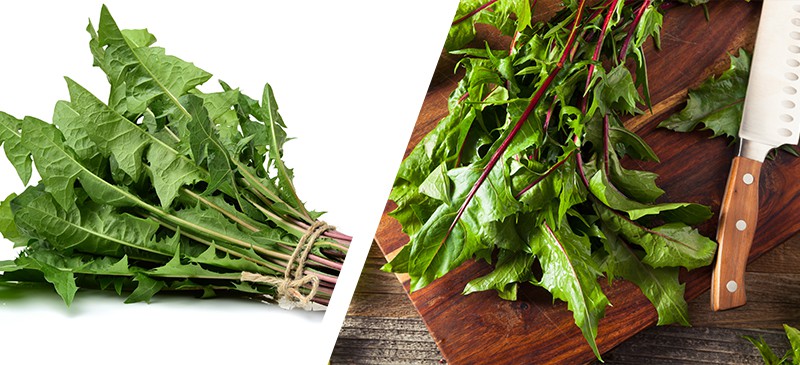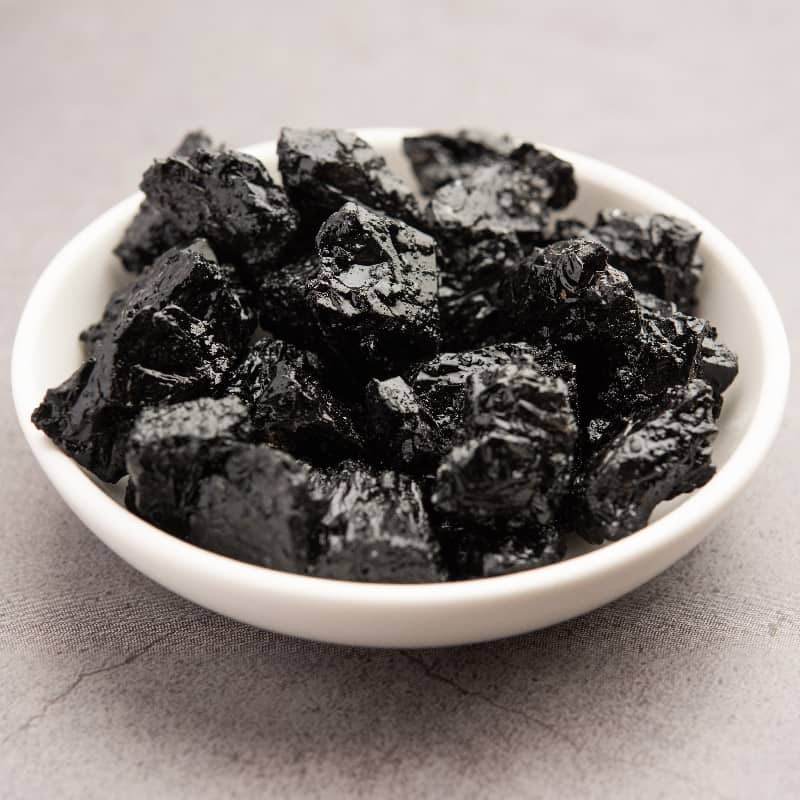This Dr. Axe content is medically reviewed or fact checked to ensure factually accurate information.
With strict editorial sourcing guidelines, we only link to academic research institutions, reputable media sites and, when research is available, medically peer-reviewed studies. Note that the numbers in parentheses (1, 2, etc.) are clickable links to these studies.
The information in our articles is NOT intended to replace a one-on-one relationship with a qualified health care professional and is not intended as medical advice.
This article is based on scientific evidence, written by experts and fact checked by our trained editorial staff. Note that the numbers in parentheses (1, 2, etc.) are clickable links to medically peer-reviewed studies.
Our team includes licensed nutritionists and dietitians, certified health education specialists, as well as certified strength and conditioning specialists, personal trainers and corrective exercise specialists. Our team aims to be not only thorough with its research, but also objective and unbiased.
The information in our articles is NOT intended to replace a one-on-one relationship with a qualified health care professional and is not intended as medical advice.
Dandelion Greens: How to Use This Nutritional Powerhouse
October 11, 2019

Dandelion greens may seem like little more than a common weed, sprouting up on lawns across the country as one of the first signs of spring. But did you know that this familiar plant actually doubles as a medicinal herb and versatile ingredient that’s packed with health benefits?
Besides bringing a pop of flavor and color to salads and side dishes alike, the dandelion greens nutrition profile also boasts a good chunk of fiber, vitamin K and vitamin A in every serving.
Not only that, but this nutrient-rich ingredient has even been shown to help enhance heart health, boost weight loss and support liver function as well.
What Are Dandelion Greens?
Dandelions are a type of plant native to Eurasia and North America; the two species, T. officinale and T. erythrospermum, are found as weeds worldwide. The plant is believed to have evolved about 30 million years ago in Eurasia.
The name dandelion comes from the French word dent-de-lion, meaning “lion’s tooth.” Dandelion plants are from the daisy family and part of the Taraxacum species. They look like very small flowers that are collected together into a flower head, or floret.
The leaves of a dandelion flower are typically 5–25 centimeters long. The flower heads are a yellow to orange color; they open in the daytime and stay closed at night.
When you break the stem of a dandelion, it exudes a white, milky liquid. When the flowerhead matures, it becomes a white ball that contains many seeds and fine hairs.
Many people try to get rid of dandelions as they grow in our yards year after year, but the dandelion plant is actually a beneficial weed. It’s useful when gardening because it brings nutrients to the top of the soil, helping shallow-rooted plants and adding minerals and nitrogen to the soil. It also attracts pollinating insects and releases ethylene gas that helps fruit ripen.
Nutrition Facts
Dandelion is rich in many nutrients yet low in calories. In particular, it contains a good amount of fiber as well as vitamin K, vitamin A and vitamin C.
One cup of chopped dandelion greens (55 grams) contains approximately:
- 24.7 calories
- 5.1 grams carbohydrates
- 1.5 grams protein
- 0.4 gram fat
- 1.9 grams fiber
- 428 micrograms vitamin K (535 percent DV)
- 5,588 international units vitamin A (112 percent DV)
- 19.3 milligrams vitamin C (32 percent DV)
- 103 milligrams calcium (10 percent DV)
- 1.7 milligrams iron (9 percent DV)
- 1.9 milligrams vitamin E (9 percent DV)
- 0.2 milligram manganese (9 percent DV)
Dandelion greens also contain a small amount of thiamine, riboflavin, niacin, vitamin B6, folate, magnesium, phosphorus, potassium, zinc and copper.
Benefits
1. Promote Eye Health
Dandelion greens are jam-packed with vitamin A, fulfilling 112 percent of the daily requirements in each cup. Vitamin A is an important nutrient when it comes to eye health. In fact, vitamin A deficiency can even lead to blindness in severe cases.
One study in the Journal of the American Medical Association comprising 5,836 older adults showed that a higher intake of vitamin A was linked to a significantly lower risk of age-related macular degeneration, an eye disease that causes vision loss.
Including dandelion greens and other vitamin A-rich fruits and vegetables in your diet can help keep your eyes healthy and promote better vision.
2. Decrease Water Weight
If you’re looking to reduce bloat and water retention, dandelion greens may be able to help. Thanks to their natural diuretic properties, dandelion greens can increase urination to prevent water build-up.
In a study out of the Department of Herbal Medicine at the Tai Sophia Institute in Maryland, consuming an extract of dandelion greens was shown to increase the frequency of urination in 17 participants.
In addition to helping increase water weight loss, the diuretic properties may also help the liver remove toxins more efficiently and prevent urinary tract infections.
3. Aid in Weight Loss
Dandelion greens are extremely low in calories, with just 25 calories in each cup. They also contain a good amount of fiber, which can help keep you feeling full. Including a few servings of dandelion greens in your diet may reduce hunger and promote satiety, which can help ease weight loss.
One study also found that dandelion greens could inhibit fat absorption in a similar way to some weight loss drugs. It works by blocking the activity of pancreatic lipase, an enzyme that breaks down fat molecules in the body. In the study, dandelion extract slashed pancreatic lipase activity by a whopping 86 percent, leading to a greater excretion of fat.
Pair dandelion greens with regular exercise and a nutritious diet to optimize your results and lose weight fast.
4. Lower Triglycerides
Besides aiding in weight loss, inhibiting the activity of pancreatic lipase may also help lower triglyceride levels.
Triglycerides are a type of fat found in your bloodstream. Having high triglycerides in your blood is one of the major risk factors for heart disease.
Dandelion greens have been shown to reduce the activity of pancreatic lipase, the enzyme that breaks triglycerides down into fatty acids. This leads to an increased excretion of triglycerides and a reduction in blood triglyceride levels.
5. Protect the Liver
Much like dandelion root, dandelion greens have been shown to have powerful liver-protecting properties. In fact, a 2010 animal model showed that administering dandelion green extract to rats prevented oxidative damage and reduced inflammation and liver damage.
Increasing evidence also suggests that eating high-antioxidant foods, like dandelion, could help decrease damage caused by free radicals and prevent liver disease.

Recipes
Dandelion greens are available at many supermarkets, health food stores and farmers’ markets. Once you get your hands on this delicious veggie, there are several options for how to clean dandelion greens properly before adding it to your favorite recipes.
Start by running water over the greens and swishing in a pan to remove any grit and debris. Some also recommend washing with water and vinegar prior to cooking dandelion greens to remove all dirt.
Once it’s clean and ready to go, there are many different methods for how to cook dandelion to take advantage of the multitude of health benefits that it has to offer.
Dandelion greens make an excellent addition to sauces or dips. For example, try adding 1/2 cup of dandelion stems to Cilantro Pesto. Both the cilantro and dandelions are high in antioxidants that fight free radicals, support detoxification and possess powerful antimicrobial properties.
You can also add dandelion stems to a ton of salad recipes. It can have a bite to it and has a bit of a bitter taste, so it works especially well in a hearty mix of vegetables. This Broccoli Salad Recipe, for example, is the perfect mix for dandelion. Broccoli and dandelions have plenty of fiber and vitamin C to keep your body running properly throughout the day.
Dandelions are also great with seafood and pasta dishes. The dandelion flower can be used as an herb — just to add a little kick to your plate — or brewed along with the roots to make a cup of delicious dandelion tea.
You can also try making Horta Vrasta, a popular Greek side dish that involves just a few simple ingredients. There are several recipes and instructions available online for how to cook Greek-style dandelion greens, but it generally involves boiling the greens for 15–20 minutes to remove any bitterness and help soften them up.
Alternatively, try adding a tablespoon of chopped dandelion stems to this Salmon Patties Recipe. Not only is it loaded with heart-healthy omega-3 fats, but it also has a delicious flavor and is packed with important nutrients.
Need more ideas? Check out these other dandelion greens recipe options to help get you going:
- Indian Split Pea Dal with Dandelion Greens
- Dandelion Greens Salad
- Steamed Potatoes with Dandelion Greens and Salsa Verde
- Vegan Sweet Potato Patties with Dandelion Greens
Side Effects
For some people, consuming dandelion greens could trigger an allergic reaction, causing serious side effects like redness, itching, swelling or digestive issues. If you experience these or any other side effects after consumption, discontinue use immediately and talk to your doctor.
Those who are taking blood thinners like warfarin may also want to moderate their intake of this leafy green, as it’s high in vitamin K, an important nutrient that can impact blood clotting. Maintaining consistent intake of vitamin K is important to help ensure that these medications are able to work effectively, so avoid making any major changes to your diet without first consulting with a trusted healthcare professional.
Because it acts as a natural diuretic, consuming high amounts may also increase the excretion of certain medications, such as lithium. If you’re taking lithium, be sure to talk to your doctor before making this leafy green a regular part of your diet.
Related: Chickweed: The Edible Weed that Supports Gut, Skin & Immune Health
Final Thoughts
- Dandelion greens are a type of plant that belong to the daisy family and are found growing as a weed around the globe.
- The dandelion greens nutrition profile is low in calories yet high in fiber, vitamin A, vitamin K and vitamin C.
- Adding this nutritious veggie to your diet could help increase weight loss, support eye health, reduce water weight, promote liver function and reduce triglyceride levels.
- Best of all, it’s also versatile, delicious and easy to enjoy in a variety of different dishes and recipes.










